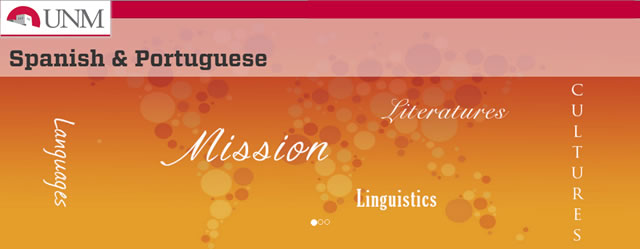
Spanish and Portuguese ETDs
Publication Date
Fall 11-15-2017
Abstract
The following dissertation on the trope of the mujer varonil[1] employs bibliographical research in literary criticism and historiography to identify and describe socio-historic attitudes about gender. In particular, this dissertation examines gender as communicated by texts that use the mujer varonil, or “masculine woman”, characterization to either praise or vilify exceptional female subjects in ways that highlight normative limits for masculine and feminine gender expression. Four texts are examined: a male author writes each and each represents a literary genre that was significant in early modern Spain and Spanish America. These genres are the hagiography, the relación, the inquisition proceeding, and the comedia. These texts communicate important attitudes about gender-bending that are associated with cultural limits for gender expression, which inform boundaries that demarcate three normative gender roles: male, female and third gender.
The selected texts are didactic because they communicate limits for gender-bending by exceptional females that ultimately reinforce an androcentric social structure and its associated normative gender roles. These texts use the mujer varonil trope to portray their subjects in ways that communicate the limits for female agency. Simultaneously, the texts allow for some agency by praising certain forms of transition to a male identity by people identified as female at birth. The texts and genres explored in this dissertation thus raise important questions about socio-historic limits for normative gender expression in early modern Spain and Spanish America while also providing answers that resolve the ambiguities that they explore. They do this in ways that support the imperial project and the social stability necessary for its success.
[1] The term mujer varonil is employed provisionally here. In the language of the times, the word mujer in most contexts did not include virgens. In further research, I plan to address this issue of terminology as it applies to the masculine female in the religious orders. That is outside the scope of this present work.
Degree Name
Spanish & Portuguese (PhD)
Level of Degree
Doctoral
Department Name
Spanish and Portuguese
First Committee Member (Chair)
Mary Quinn
Second Committee Member
Kathryn McKnight
Third Committee Member
Anthony Cárdenas-Rotunno
Fourth Committee Member
Anita Obermeier
Language
English
Keywords
mujer varonil, female masculinity, transatlantic, performance theory, queer theory
Document Type
Dissertation
Recommended Citation
Redekopp, Nathaniel L.. "PERFORMING (FEMALE) MASCULINITY IN THE EARLY MODERN IBERO-ATLANTIC WORLD: AN ANALYSIS OF THE MUJER VARONIL IN GENDER AND GENRE." (2017). https://digitalrepository.unm.edu/span_etds/95
Included in
European Languages and Societies Commons, Latin American Languages and Societies Commons, Lesbian, Gay, Bisexual, and Transgender Studies Commons, Other Feminist, Gender, and Sexuality Studies Commons, Women's Studies Commons
